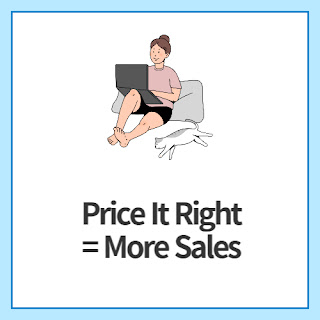You’ve finished creating your digital product — now comes the hard question:
How much should I charge for it?
Price it too low, and you leave money on the table.
Price it too high, and people may hesitate to buy.
Here’s how to find the perfect price for your product — one that attracts buyers and brings in solid profit.
💸 1. Start With Your Product Type
Some products naturally sell at higher price points:
| Product Type | Common Price Range |
|---|---|
| Printable checklist | $2 – $7 |
| Canva template bundle | $10 – $25 |
| Notion/Excel planners | $9 – $19 |
| Ebooks or guides | $5 – $15 |
| Business toolkits | $15 – $49 |
Start with the average, then adjust based on value.
🔍 2. Research the Market (But Don’t Copy Blindly)
Search Etsy, Gumroad, and Payhip for similar products.
Ask:
- What’s the average price?
- What extras do top sellers include?
- How can yours be more helpful or unique?
Tip: Being the cheapest isn’t a winning strategy — add value instead.
🧠 3. Understand Perceived Value
Customers don’t just buy the product — they buy the result it gives.
Higher prices are easier to justify when your product:
- Saves time
- Helps earn money
- Organizes chaos
- Reduces stress
Examples:
✅ “Daily planner” = $5
✅ “Daily planner for ADHD focus” = $14 (specific value)
💡 4. Use Psychological Pricing
Pricing psychology works — try it.
- $9 instead of $10 → Feels cheaper
Tiered pricing → Bundle offers: -
“$7 each or 3 for $15”
Anchor pricing → Show a higher “original” price - “$29 → now $12”
Make your price feel like a deal, even if it’s premium.
📈 5. Test & Adjust (Don’t Set It and Forget It)
Your first price isn’t forever.
- Start small to build trust
- Raise the price after reviews or sales
- Run limited-time discounts to drive urgency
- Use Gumroad’s “pay what you want” feature with a minimum price
Track which price converts better.
🚀 Final Tip
Confidence sells. If you believe your product is valuable, your pricing should reflect that.
It’s better to sell 5 items at $15 than 15 items at $1.99 — and it’s often easier too.
